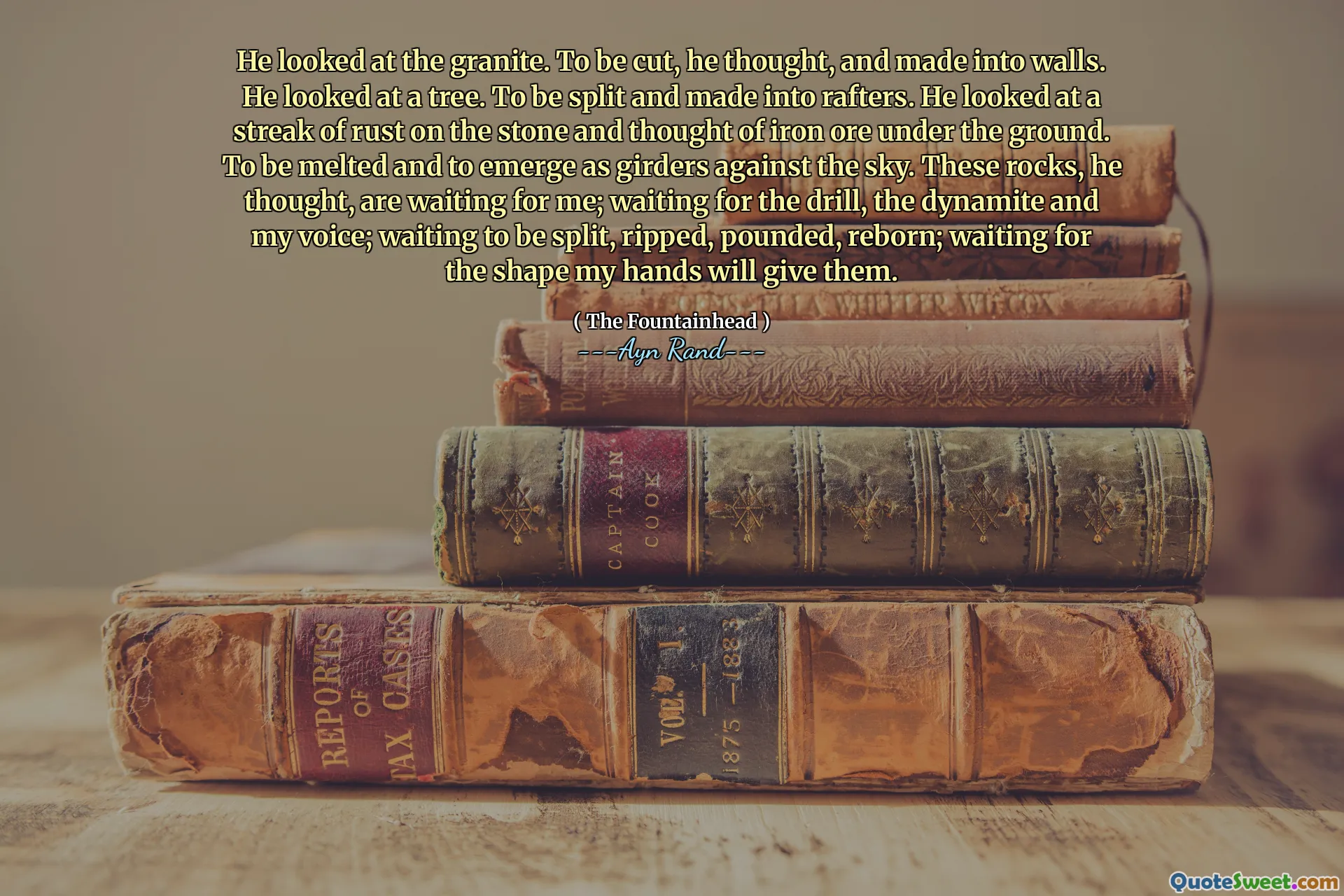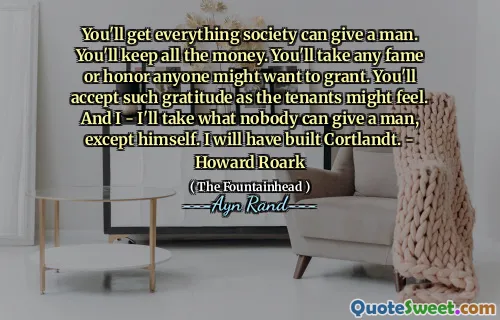
He looked at the granite. To be cut, he thought, and made into walls. He looked at a tree. To be split and made into rafters. He looked at a streak of rust on the stone and thought of iron ore under the ground. To be melted and to emerge as girders against the sky. These rocks, he thought, are waiting for me; waiting for the drill, the dynamite and my voice; waiting to be split, ripped, pounded, reborn; waiting for the shape my hands will give them.
This passage from Ayn Rand's The Fountainhead vividly portrays a vision of transformation and creation, emphasizing the human capacity to reshape the world through effort and intention. The protagonist views the raw materials of nature—granite, wood, iron ore—not merely for what they are, but for what they can become through his actions. This mindset reflects creativity as an act of will, seeing potential where others might see only inert substance.
The idea of materials 'waiting' for the hand of the creator captures an intimate relationship between man and nature, suggesting that the environment is not static but holds the possibility for change and rebirth through human intervention. The act of 'cutting,' 'splitting,' and 'melting' is more than destruction; it is a process of transformation, turning natural elements into structures that define human achievement and ingenuity.
Furthermore, this quote encapsulates the theme of individual power and responsibility. The phrase 'waiting for my voice' personifies the materials, implying they respond not just to physical force but to the creative vision and authority of the individual. It highlights the profound impact one person can have by harnessing resources and imagination to manifest their purpose.
In a broader philosophical context, this passage reinforces Rand's Objectivist ideals: rationality, purposeful action, and the triumph of human creativity as the driving force behind civilization. It is a celebration of human capability and the transformative power of the mind and hands working in concert to bring about new forms and realities.








